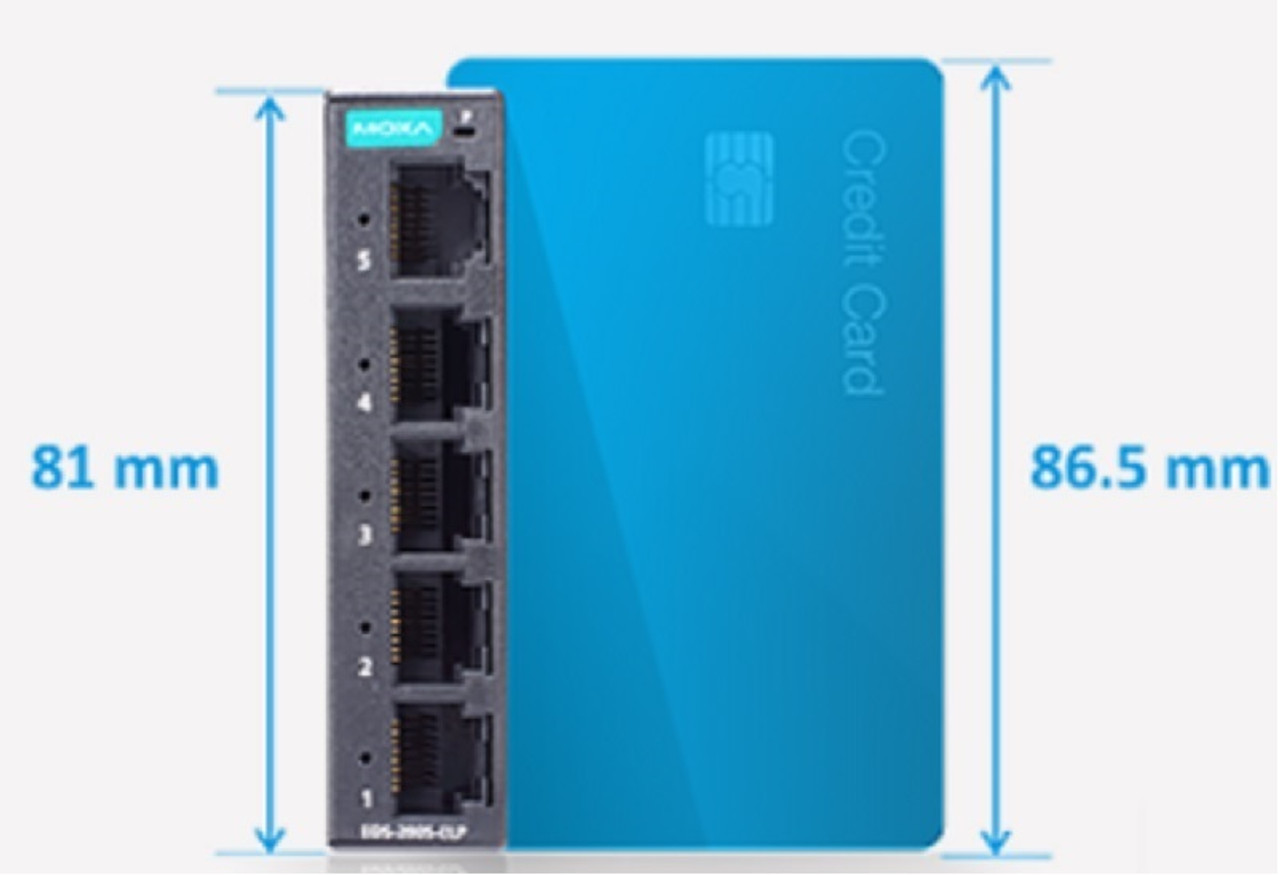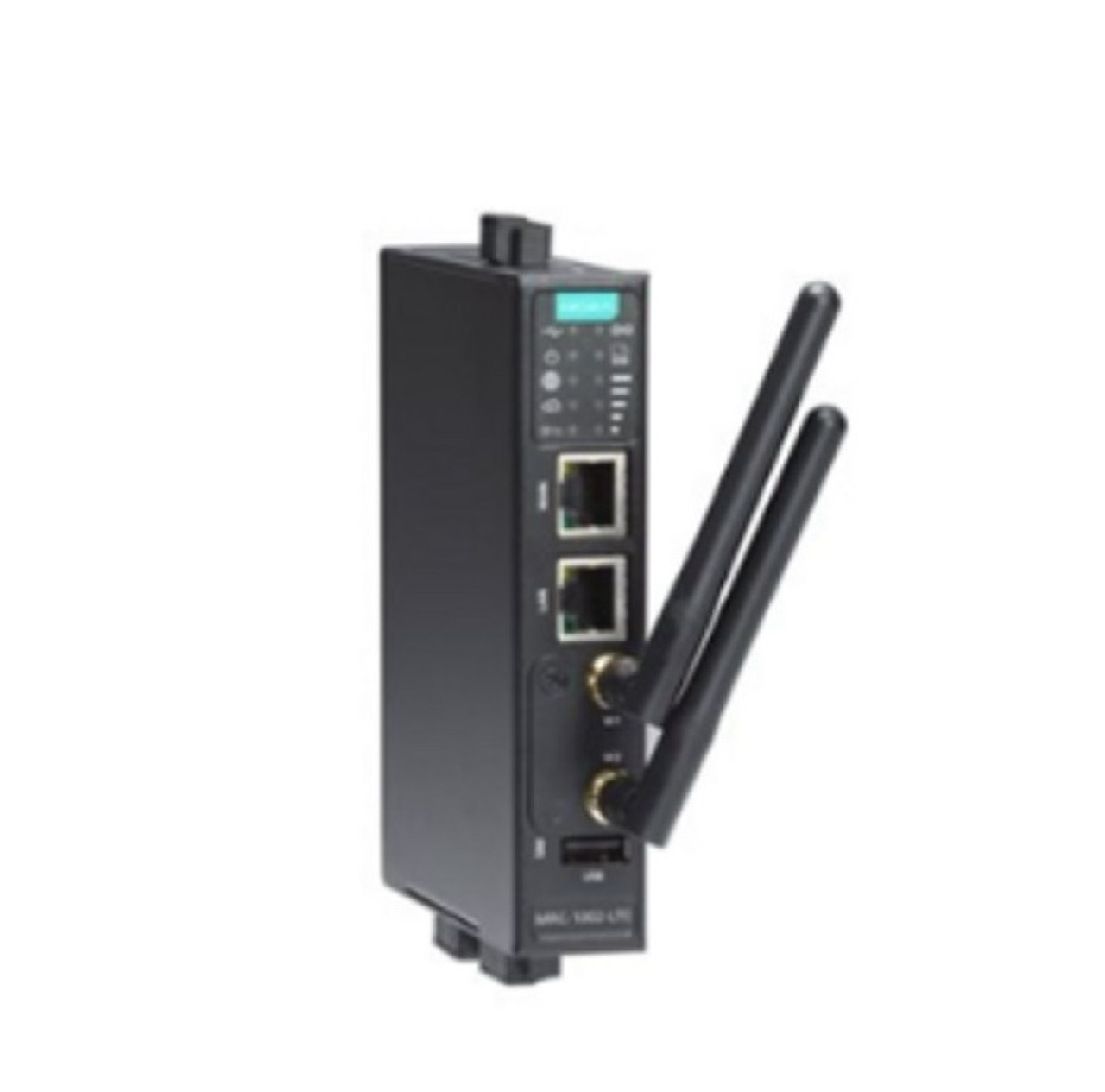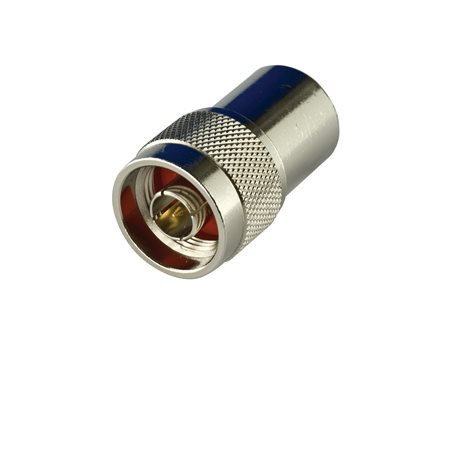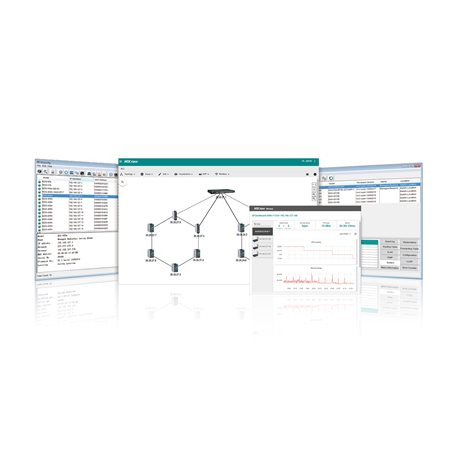
MOXA ioMirror E3200 Series
Features and Benefits
- Direct input-to-output signal communication over IP
- High-speed peer-to-peer I/O within 20 ms
- One physical alarm port for connectivity status
- Utility for quick and easy web-based settings
- Local alarm channel
- Remote alarm message
- Supports Modbus TCP for remote monitoring
- Optional LCD module for easy configuration
| Product ID | Product Description | Availability | Price | Qty |
|---|
Introduction
The ioMirror E3200 Series, which is designed as a cable-replacement solution to connect remote digital input signals to output signals over an IP network, provides 8 digital input channels, 8 digital output channels, and a 10/100M Ethernet interface. Up to 8 pairs of digital input and output signals can be exchanged over Ethernet with another ioMirror E3200 Series device, or can be sent to a local PLC or DCS controller. Over a local area network, the ioMirror can achieve a low signal latency (typically less than 20 ms). With the ioMirror, remote sensors can be connected to local controllers or display panels over copper, fiber, or wireless Ethernet infrastructures, and signals can be transmitted over virtually unlimited distances, without noise problems.
Split Sensor Signals to 16 Different Locations
The ioMirror E3200 Series can split one input signal to two digital output channels at two different IP addresses. Eight tank level signals can be monitored at 16 different display panels, all at the same time.
Local Alarm and Remote Alarm Messages for Monitoring Connectivity
The ioMirror E3200 Series has a 24 VDC alarm output channel that can activate an attached buzzer or LED display when the connection fails. In addition, both ioMirror modules can send messages to the ioEventLog software, ensuring that at least one of the warning messages will reach the ioEventLog software.










__93628.1680878152.jpg?c=1 80w, https://cdn11.bigcommerce.com/s-exhcjslbho/images/stencil/160w/products/3779/24584/moxa-iomirror-e3200-series-image-1-(2)__93628.1680878152.jpg?c=1 160w, https://cdn11.bigcommerce.com/s-exhcjslbho/images/stencil/320w/products/3779/24584/moxa-iomirror-e3200-series-image-1-(2)__93628.1680878152.jpg?c=1 320w, https://cdn11.bigcommerce.com/s-exhcjslbho/images/stencil/640w/products/3779/24584/moxa-iomirror-e3200-series-image-1-(2)__93628.1680878152.jpg?c=1 640w, https://cdn11.bigcommerce.com/s-exhcjslbho/images/stencil/960w/products/3779/24584/moxa-iomirror-e3200-series-image-1-(2)__93628.1680878152.jpg?c=1 960w, https://cdn11.bigcommerce.com/s-exhcjslbho/images/stencil/1280w/products/3779/24584/moxa-iomirror-e3200-series-image-1-(2)__93628.1680878152.jpg?c=1 1280w, https://cdn11.bigcommerce.com/s-exhcjslbho/images/stencil/1920w/products/3779/24584/moxa-iomirror-e3200-series-image-1-(2)__93628.1680878152.jpg?c=1 1920w, https://cdn11.bigcommerce.com/s-exhcjslbho/images/stencil/2560w/products/3779/24584/moxa-iomirror-e3200-series-image-1-(2)__93628.1680878152.jpg?c=1 2560w)
__69327.1680878153.jpg?c=1 80w, https://cdn11.bigcommerce.com/s-exhcjslbho/images/stencil/160w/products/3779/24585/moxa-iomirror-e3200-series-image-2-(2)__69327.1680878153.jpg?c=1 160w, https://cdn11.bigcommerce.com/s-exhcjslbho/images/stencil/320w/products/3779/24585/moxa-iomirror-e3200-series-image-2-(2)__69327.1680878153.jpg?c=1 320w, https://cdn11.bigcommerce.com/s-exhcjslbho/images/stencil/640w/products/3779/24585/moxa-iomirror-e3200-series-image-2-(2)__69327.1680878153.jpg?c=1 640w, https://cdn11.bigcommerce.com/s-exhcjslbho/images/stencil/960w/products/3779/24585/moxa-iomirror-e3200-series-image-2-(2)__69327.1680878153.jpg?c=1 960w, https://cdn11.bigcommerce.com/s-exhcjslbho/images/stencil/1280w/products/3779/24585/moxa-iomirror-e3200-series-image-2-(2)__69327.1680878153.jpg?c=1 1280w, https://cdn11.bigcommerce.com/s-exhcjslbho/images/stencil/1920w/products/3779/24585/moxa-iomirror-e3200-series-image-2-(2)__69327.1680878153.jpg?c=1 1920w, https://cdn11.bigcommerce.com/s-exhcjslbho/images/stencil/2560w/products/3779/24585/moxa-iomirror-e3200-series-image-2-(2)__69327.1680878153.jpg?c=1 2560w)
__92082.1680878153.jpg?c=1 80w, https://cdn11.bigcommerce.com/s-exhcjslbho/images/stencil/160w/products/3779/24586/moxa-iomirror-e3200-series-image-3-(2)__92082.1680878153.jpg?c=1 160w, https://cdn11.bigcommerce.com/s-exhcjslbho/images/stencil/320w/products/3779/24586/moxa-iomirror-e3200-series-image-3-(2)__92082.1680878153.jpg?c=1 320w, https://cdn11.bigcommerce.com/s-exhcjslbho/images/stencil/640w/products/3779/24586/moxa-iomirror-e3200-series-image-3-(2)__92082.1680878153.jpg?c=1 640w, https://cdn11.bigcommerce.com/s-exhcjslbho/images/stencil/960w/products/3779/24586/moxa-iomirror-e3200-series-image-3-(2)__92082.1680878153.jpg?c=1 960w, https://cdn11.bigcommerce.com/s-exhcjslbho/images/stencil/1280w/products/3779/24586/moxa-iomirror-e3200-series-image-3-(2)__92082.1680878153.jpg?c=1 1280w, https://cdn11.bigcommerce.com/s-exhcjslbho/images/stencil/1920w/products/3779/24586/moxa-iomirror-e3200-series-image-3-(2)__92082.1680878153.jpg?c=1 1920w, https://cdn11.bigcommerce.com/s-exhcjslbho/images/stencil/2560w/products/3779/24586/moxa-iomirror-e3200-series-image-3-(2)__92082.1680878153.jpg?c=1 2560w)
__72477.1770007314.jpg?c=1 80w, https://cdn11.bigcommerce.com/s-exhcjslbho/images/stencil/160w/products/3779/30554/moxa-iomirror-e3200-series-image-1-(1)__72477.1770007314.jpg?c=1 160w, https://cdn11.bigcommerce.com/s-exhcjslbho/images/stencil/320w/products/3779/30554/moxa-iomirror-e3200-series-image-1-(1)__72477.1770007314.jpg?c=1 320w, https://cdn11.bigcommerce.com/s-exhcjslbho/images/stencil/640w/products/3779/30554/moxa-iomirror-e3200-series-image-1-(1)__72477.1770007314.jpg?c=1 640w, https://cdn11.bigcommerce.com/s-exhcjslbho/images/stencil/960w/products/3779/30554/moxa-iomirror-e3200-series-image-1-(1)__72477.1770007314.jpg?c=1 960w, https://cdn11.bigcommerce.com/s-exhcjslbho/images/stencil/1280w/products/3779/30554/moxa-iomirror-e3200-series-image-1-(1)__72477.1770007314.jpg?c=1 1280w, https://cdn11.bigcommerce.com/s-exhcjslbho/images/stencil/1920w/products/3779/30554/moxa-iomirror-e3200-series-image-1-(1)__72477.1770007314.jpg?c=1 1920w, https://cdn11.bigcommerce.com/s-exhcjslbho/images/stencil/2560w/products/3779/30554/moxa-iomirror-e3200-series-image-1-(1)__72477.1770007314.jpg?c=1 2560w)
__10389.1770007315.jpg?c=1 80w, https://cdn11.bigcommerce.com/s-exhcjslbho/images/stencil/160w/products/3779/30555/moxa-iomirror-e3200-series-image-2-(1)__10389.1770007315.jpg?c=1 160w, https://cdn11.bigcommerce.com/s-exhcjslbho/images/stencil/320w/products/3779/30555/moxa-iomirror-e3200-series-image-2-(1)__10389.1770007315.jpg?c=1 320w, https://cdn11.bigcommerce.com/s-exhcjslbho/images/stencil/640w/products/3779/30555/moxa-iomirror-e3200-series-image-2-(1)__10389.1770007315.jpg?c=1 640w, https://cdn11.bigcommerce.com/s-exhcjslbho/images/stencil/960w/products/3779/30555/moxa-iomirror-e3200-series-image-2-(1)__10389.1770007315.jpg?c=1 960w, https://cdn11.bigcommerce.com/s-exhcjslbho/images/stencil/1280w/products/3779/30555/moxa-iomirror-e3200-series-image-2-(1)__10389.1770007315.jpg?c=1 1280w, https://cdn11.bigcommerce.com/s-exhcjslbho/images/stencil/1920w/products/3779/30555/moxa-iomirror-e3200-series-image-2-(1)__10389.1770007315.jpg?c=1 1920w, https://cdn11.bigcommerce.com/s-exhcjslbho/images/stencil/2560w/products/3779/30555/moxa-iomirror-e3200-series-image-2-(1)__10389.1770007315.jpg?c=1 2560w)
__69877.1770007315.jpg?c=1 80w, https://cdn11.bigcommerce.com/s-exhcjslbho/images/stencil/160w/products/3779/30556/moxa-iomirror-e3200-series-image-3-(1)__69877.1770007315.jpg?c=1 160w, https://cdn11.bigcommerce.com/s-exhcjslbho/images/stencil/320w/products/3779/30556/moxa-iomirror-e3200-series-image-3-(1)__69877.1770007315.jpg?c=1 320w, https://cdn11.bigcommerce.com/s-exhcjslbho/images/stencil/640w/products/3779/30556/moxa-iomirror-e3200-series-image-3-(1)__69877.1770007315.jpg?c=1 640w, https://cdn11.bigcommerce.com/s-exhcjslbho/images/stencil/960w/products/3779/30556/moxa-iomirror-e3200-series-image-3-(1)__69877.1770007315.jpg?c=1 960w, https://cdn11.bigcommerce.com/s-exhcjslbho/images/stencil/1280w/products/3779/30556/moxa-iomirror-e3200-series-image-3-(1)__69877.1770007315.jpg?c=1 1280w, https://cdn11.bigcommerce.com/s-exhcjslbho/images/stencil/1920w/products/3779/30556/moxa-iomirror-e3200-series-image-3-(1)__69877.1770007315.jpg?c=1 1920w, https://cdn11.bigcommerce.com/s-exhcjslbho/images/stencil/2560w/products/3779/30556/moxa-iomirror-e3200-series-image-3-(1)__69877.1770007315.jpg?c=1 2560w)





